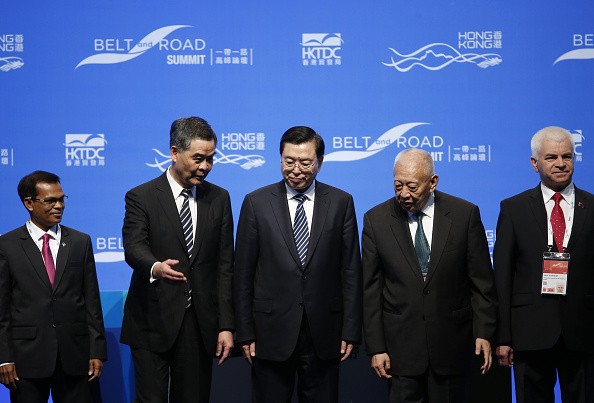If reforms would be implemented, China could significantly transform global economic development as the world is expected to gain huge benefits from China's Belt and Road Initiative, Jean-Pierre Lehmann, an expert on the international economy, said Friday, Jan. 27, at a conference in Bucharest in Romania.
Lehmann, who is also the founder of the Evian Group, said in his speech that the world could gain huge economic benefits from the initiative, which involves about $2.5 trillion and has added 1.75 percent surplus to the world's GDP, although it has yet to overcome challenges such as acquiring new assets and addressing social unrest in some areas, Xinhua News Agency reported.
According to Lehmann, "the narrative of the 21st century will be written in Asia by the Asians, and above all, by China as a regional and global power."
"China is already the main market for many countries, from Brazil to France . . . there are Chinese interests across the world, from Seattle to Djibouti," the expert added.
Lehmann pointed out that China's global influence has been noticeable.
"The Asian Infrastructure Investment Bank (AIIB), set up in 2016, attracted even the U.S. allies, and Obama failed to prevent them from joining the AIIB. China already set up 110 economic zones in 50 countries. In Xi'an (a city in China's northwest), the Summit of the Silk Road gathered 500 participants from 52 countries," he said.
The expert said China has contributed about 25 percent to world economic growth and by 2030, it is expected to become a top-earning economy fueled by creativity and ideas.
"The Chinese economy was made by muscle, but now it's getting more with the brain, but many do not understand this!"
Lehmann said that it is a symbiotic relationship in which the world relies on China and China depends on the world. He attributed this gain to the reform and open policies of the late Chinese leader Deng Xiaoping. Now, three decades after him, the world needs China, the expert noted.
The expert also advised that companies doing business in China face strong competition.
"Often, many countries seem to have the same competitive advantages, but you should keep up the discussion and build relations for business with the Chinese," he advised.
"In January 2017, the first freight train from Yiwu (in eastern China) to London became operational and Xi Jinping was the first Chinese president to come to Davos, this is staggering! We already speak of Eurasia. Things happen at an amazingly rapid pace," Lehmann added.
He said that "China's foreign policy could reshape a good part of the world's economy," but it should be taken as a move that China is moving towards domination or hegemony.



























